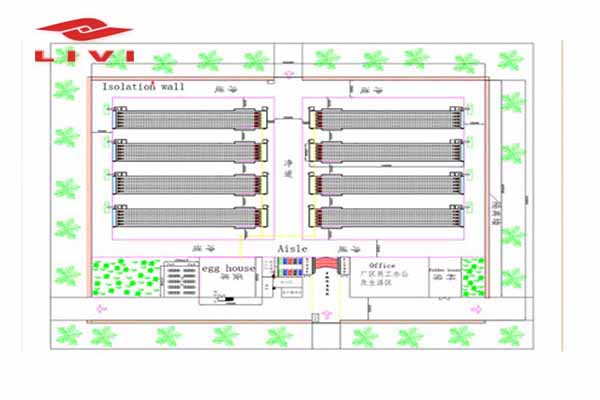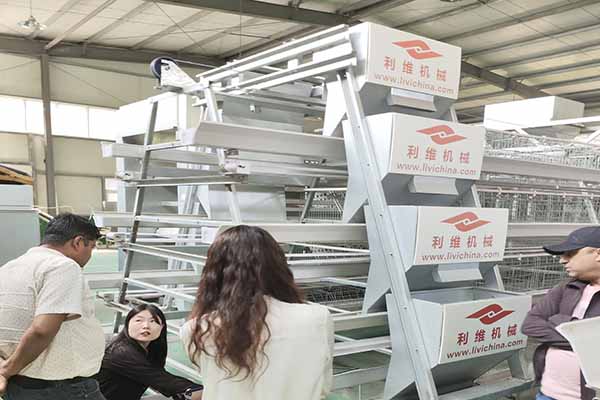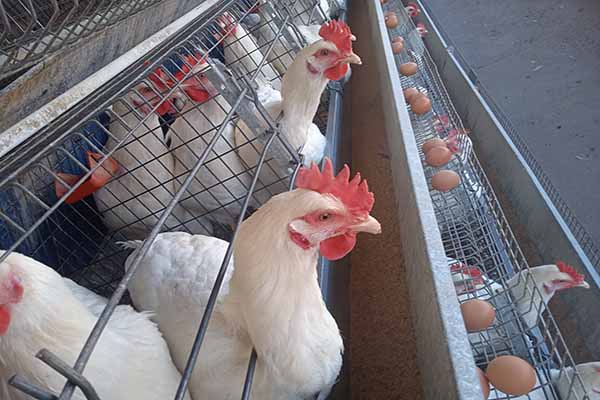Import Policy for Automated Chicken Farms in Kenya: A Comprehensive Guide
Time : 2025-06-24
The poultry industry in Kenya has been experiencing significant growth, with automated chicken farms emerging as a key component of this progress. As the demand for high-quality, efficient poultry production increases, understanding the import policy for automated chicken farm equipment is crucial for investors and farmers alike. This article provides a detailed overview of the import policy for automated chicken farms in Kenya, including the necessary permits, regulations, and considerations for a successful importation process.

Introduction to Automated Chicken Farms in Kenya
Automated chicken farms are designed to enhance productivity and efficiency in poultry farming. These farms utilize advanced technology to automate various processes, such as feeding, cleaning, and monitoring of the chickens. The adoption of automated systems has led to increased production, reduced labor costs, and improved biosecurity, making them an attractive option for Kenyan farmers.

Import Policy Overview
The import policy for automated chicken farms in Kenya is governed by the Kenya Revenue Authority (KRA) and the Ministry of Agriculture, Livestock, and Fisheries. The following are the key aspects of the import policy:
- Import Permits: All imports of automated chicken farm equipment require an import permit from the KRA. This permit ensures that the equipment complies with the necessary regulations and standards.
- Customs Duties: Imports of automated chicken farm equipment are subject to customs duties, which vary depending on the type of equipment and its value. The rates are determined by the KRA and are subject to change.
- Health and Biosecurity Regulations: All imported equipment must meet the health and biosecurity standards set by the Kenya Veterinary Services (KVS). This includes certification of the equipment as free from diseases and pests.
- Technical Specifications: The imported equipment must meet the technical specifications and standards set by the Kenyan government. This ensures compatibility with the local power supply and infrastructure.
Import Process for Automated Chicken Farms
The import process for automated chicken farm equipment involves several steps, which are outlined below:
1. Pre-Importation Requirements
Before importing automated chicken farm equipment, the following requirements must be met:

- Identify the Equipment: Clearly define the type and specifications of the equipment to be imported.
- Research Suppliers: Identify reputable suppliers who can provide the required equipment and ensure compliance with import regulations.
- Obtain Necessary Permits: Apply for the import permit from the KRA and any other required permits, such as health and biosecurity certificates.
2. Shipment and Customs Clearance
Once the permits are obtained, the equipment can be shipped to Kenya. The following steps should be followed:
- Transportation: Arrange for the transportation of the equipment to Kenya, ensuring that it is properly packaged and labeled.
- Customs Declaration: Complete the customs declaration form and submit it to the KRA along with the necessary documents, including the import permit, bill of lading, and commercial invoice.
- Customs Inspection: The KRA will inspect the equipment to ensure compliance with import regulations and standards.
- Payment of Duties: Pay the customs duties and any other applicable taxes.
- Release of Goods: Once the duties are paid and the inspection is completed, the equipment can be released and transported to the final destination.
Post-Importation Considerations
After the equipment has been imported and installed, there are several post-importation considerations to keep in mind:
- Training: Ensure that the staff operating the equipment are adequately trained to maximize its efficiency and reduce the risk of accidents.
- Maintenance: Establish a regular maintenance schedule to ensure the longevity and performance of the equipment.
- Compliance: Continuously monitor the operation of the equipment to ensure compliance with local regulations and standards.
Benefits of Automated Chicken Farms
Investing in automated chicken farm equipment can offer several benefits to Kenyan farmers:
- Increased Productivity: Automation can significantly increase the productivity of poultry farms by reducing labor requirements and improving the efficiency of processes.
- Improved Quality: Automated systems can help maintain consistent quality in the production process, resulting in higher quality products.
- Reduced Costs: Over time, the efficiency gains from automation can lead to reduced costs, including labor and feed costs.
- Enhanced Biosecurity: Automation can help in maintaining a cleaner and more hygienic environment, reducing the risk of disease outbreaks.
Conclusion
Understanding the import policy for automated chicken farms in Kenya is essential for anyone looking to invest in this modern farming technology. By following the outlined process and adhering to the regulations, farmers can successfully import and implement advanced poultry farming equipment, leading to increased productivity and profitability.











